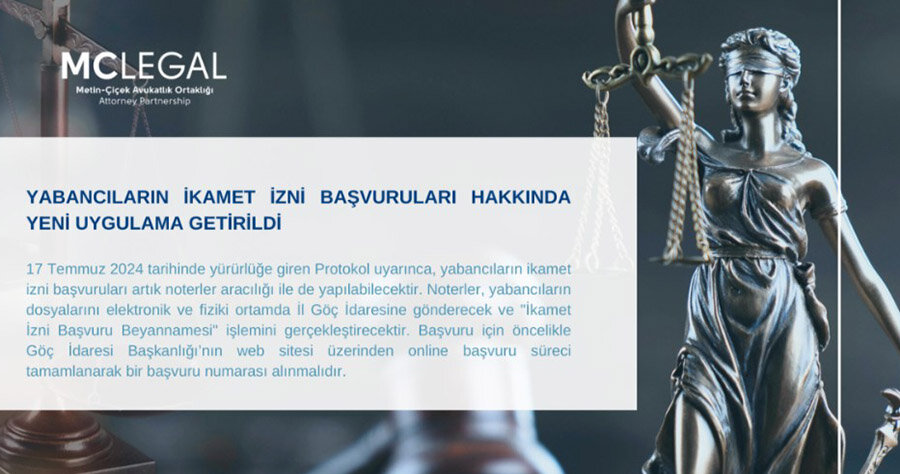How to Obtain a Turkish Residence Permit Through a Notary

In Turkey, it is now possible to apply for a residence permit not only through the immigration authority but also through notary offices. This procedure was officially approved in the summer of 2024 as part of a protocol between the Directorate General of Migration Management (DGMM) and the Turkish Notary Association, according to MCLegal.
Short-Term Stay and Residence Requirements
Foreigners can stay in Turkey for short periods either on a visa or under visa-free agreements. These visits typically cannot exceed 90 days. For those planning to stay longer than three months, a residence permit is required.
Types of Residence Permits
Turkey offers several types of residence permits for foreigners:
Work: Non-residents may obtain a residence permit through employment. Spouses and children of foreign nationals with work permits may also apply for a family residence permit.
Education: Students can receive a residence permit for the duration of their studies in undergraduate, graduate, or doctoral programs. Specialized programs such as TUS (medical) and DUS (dental) are also eligible.
Tourism: This permit allows foreigners to stay for short-term living without employment.
Family Reunification: Foreigners marrying Turkish citizens may apply for a family residence permit.
Real Estate: Purchasing property may qualify for a permit, though many areas are closed to foreigners, and the financial threshold has sharply increased to $200,000.
Application Procedure
Under the protocol effective from July 17, 2024, residence permit applications can now be processed through notaries. The process involves:
Online Application: Apply through the DGMM website and obtain an application number.
Notarial Process: Notaries scan and submit application documents to DGMM, then forward the originals.
Authentication: Applicants must provide biometric data (fingerprints) at a DGMM office within 20 days of approval.
The introduction of notarial filing aims to ease the administrative burden and enhance legal protections for foreigners, ensuring document integrity and minimizing fraud risks.
Stricter Rules for Foreign Nationals
Previously, Turkish authorities announced plans to end the issuance of tourist residence permits. Interior Minister Ali Yerlikaya stated in 2024 that citizens of 95 countries, including Russia and EU members, could visit visa-free for short periods but should not seek to change their status.
Since 2022, mass rejections of tourist residence permits began, particularly for those relying solely on rental agreements. Even with full documentation, many applicants faced denials. Russian nationals were among the most affected, often forced to leave despite holding leases or owning property.
Later, Turkey banned foreigners without residence rights from registering marriages, citing increased illegal presence and over 141,000 deportations within a year.
As of summer 2024, Turkey hosted 4.4 million foreigners, including 3.1 million Syrians. Migration outflows surged—Antalya alone saw 40,000 foreigners leave in one year. Total residence permits dropped by around 250,000 between 2022 and January 1, 2024. Russian nationals lost their lead to Turkmen citizens.
Conclusion
The notarial application process marks a key step in Turkey’s immigration reform. It provides a more structured and secure pathway for residence permits. However, amid growing restrictions and rising rejection rates, foreigners must stay informed of changing rules and submit thorough documentation. While the new system does not guarantee approval, it offers clearer procedures and better protection for applicants.
Подсказки: Turkey, immigration, residence permit, foreigners, notary, visa, legal status, expats, 2024, migration policy








